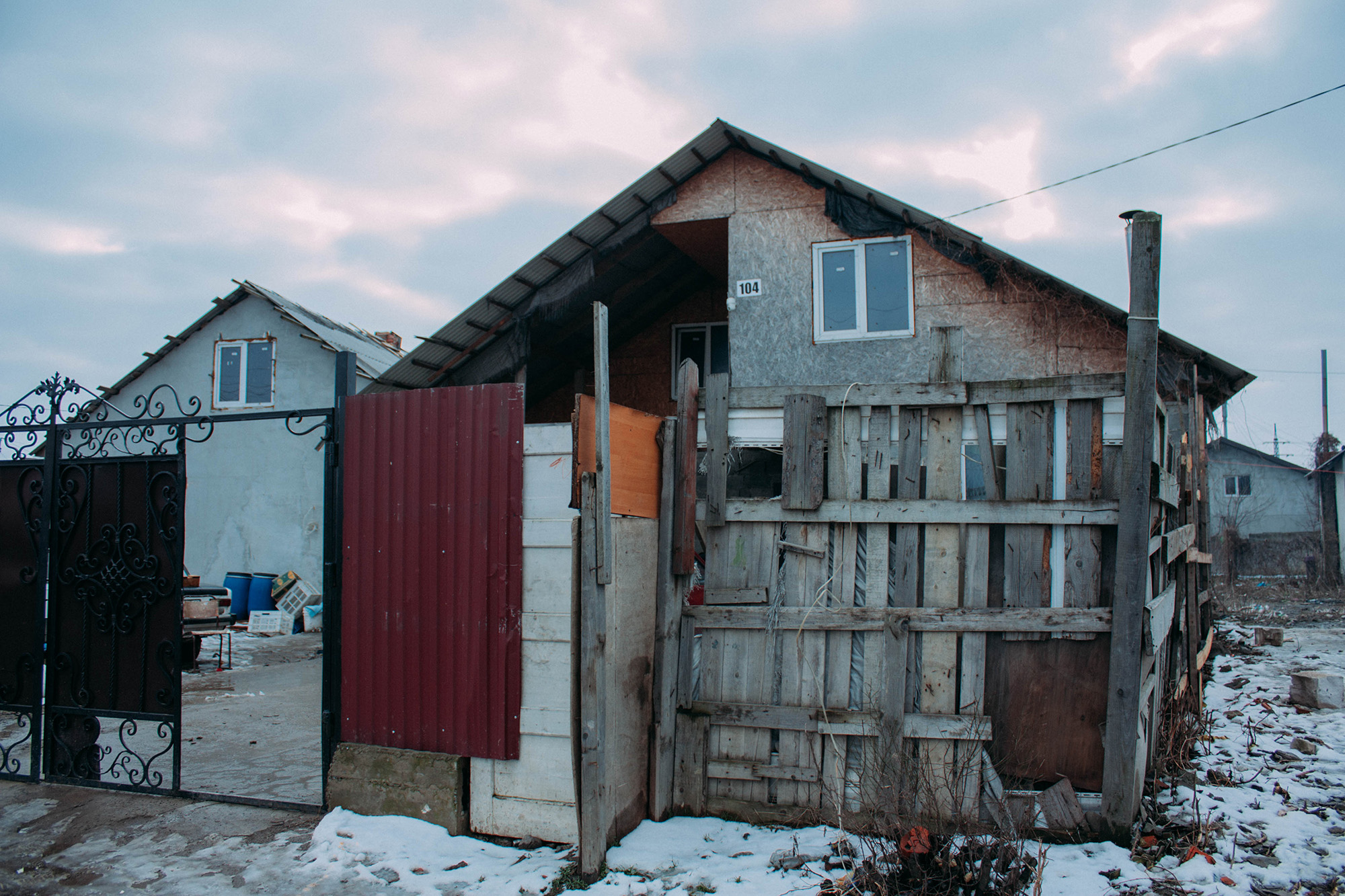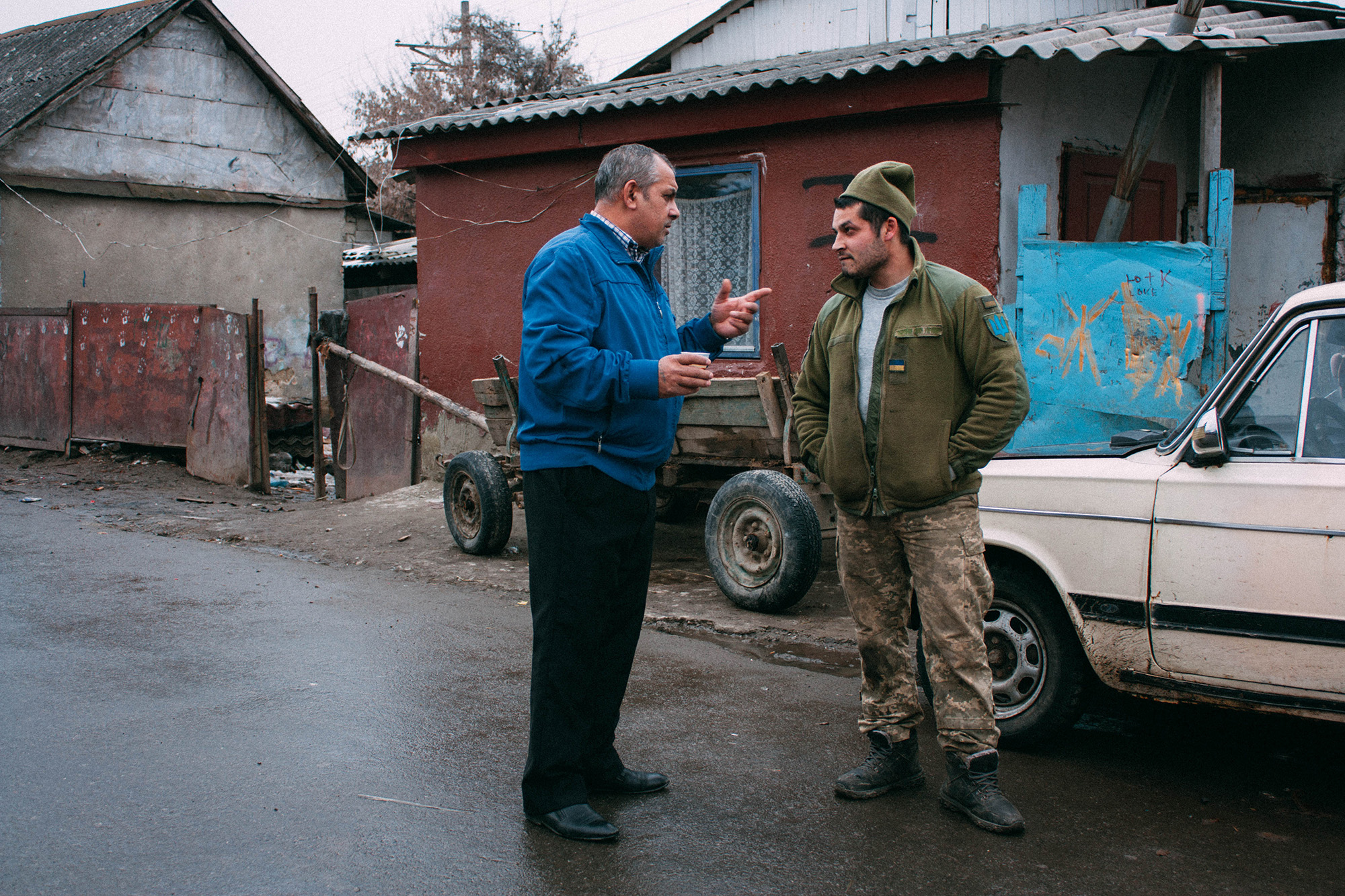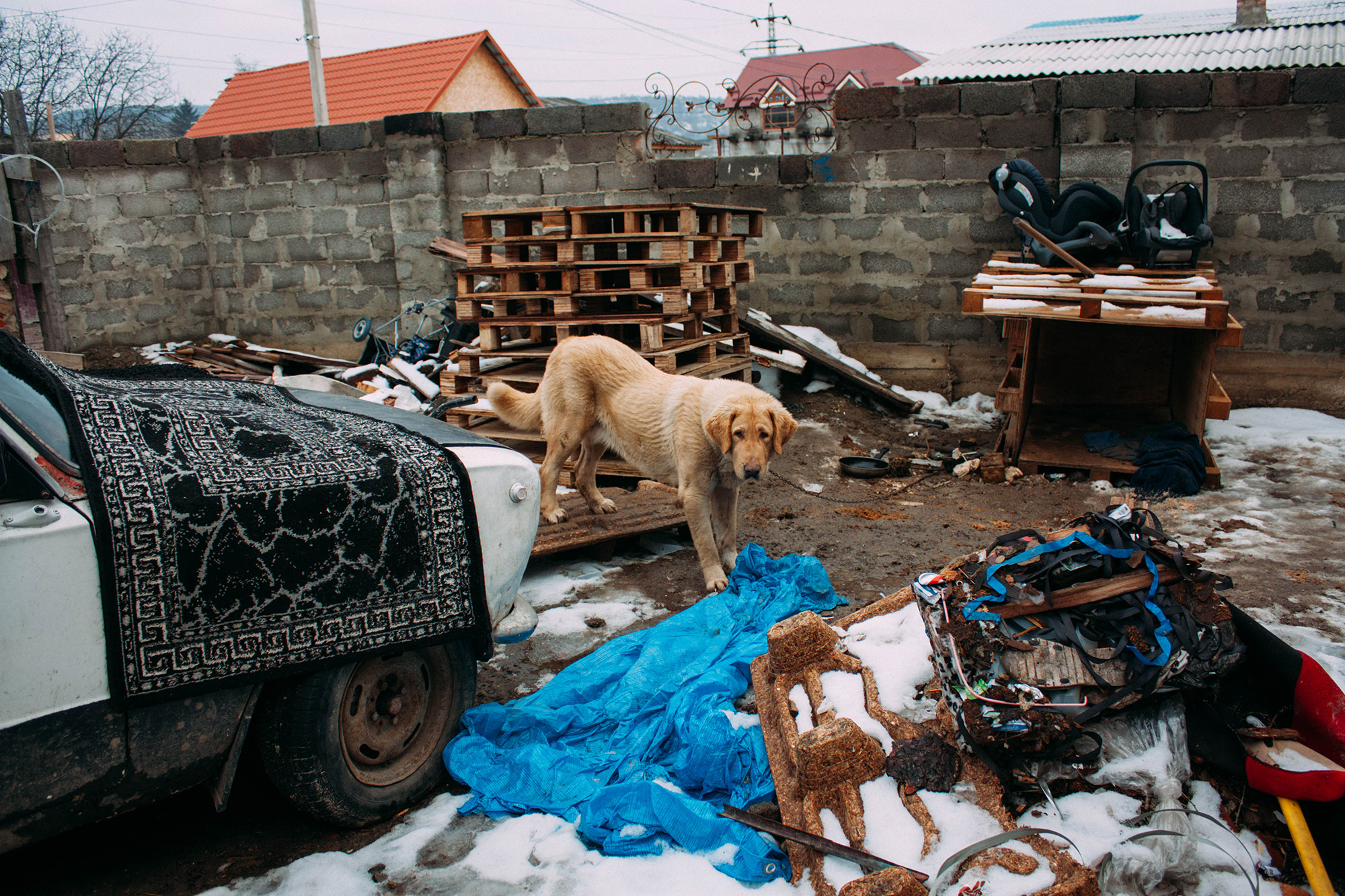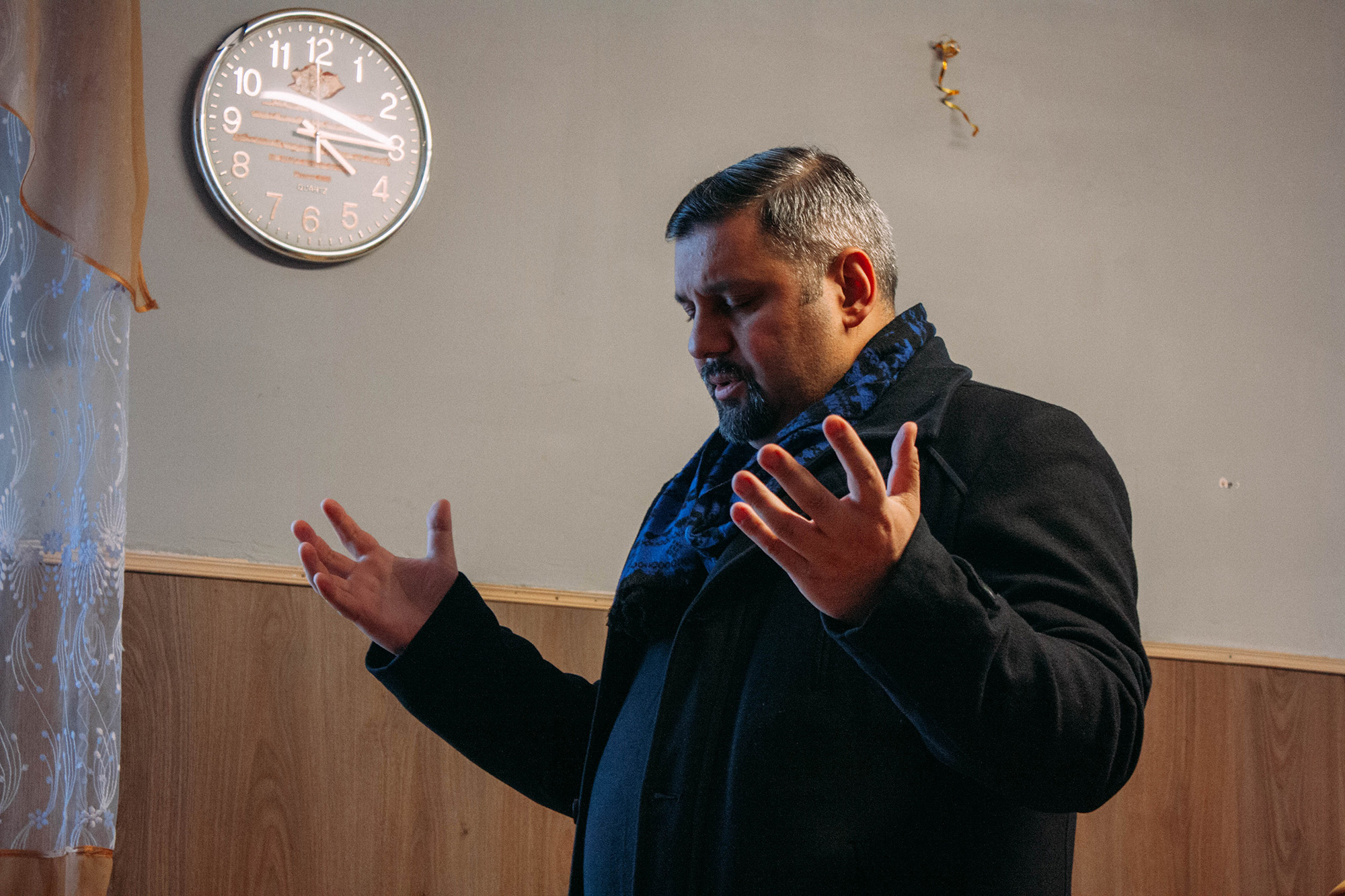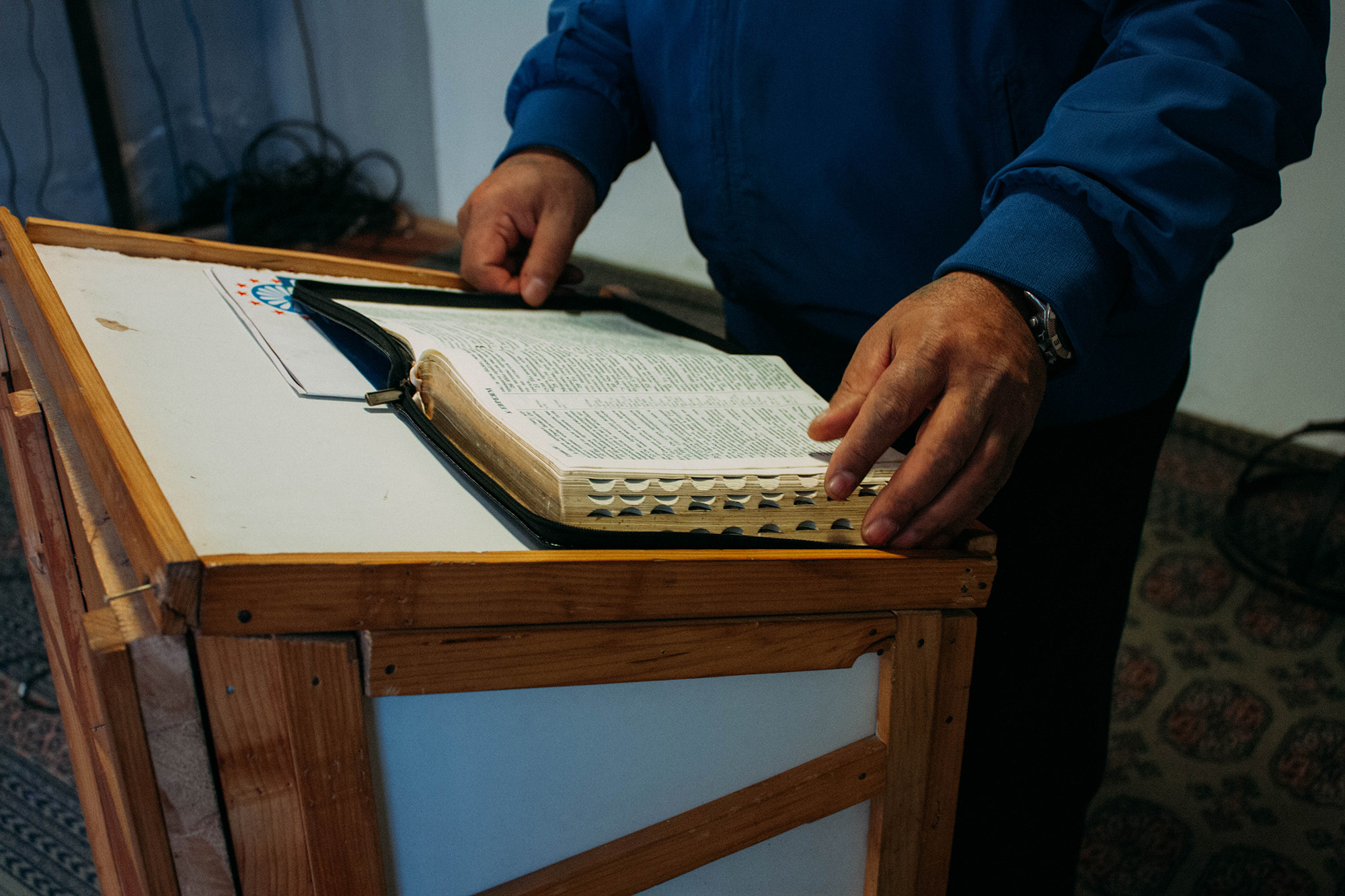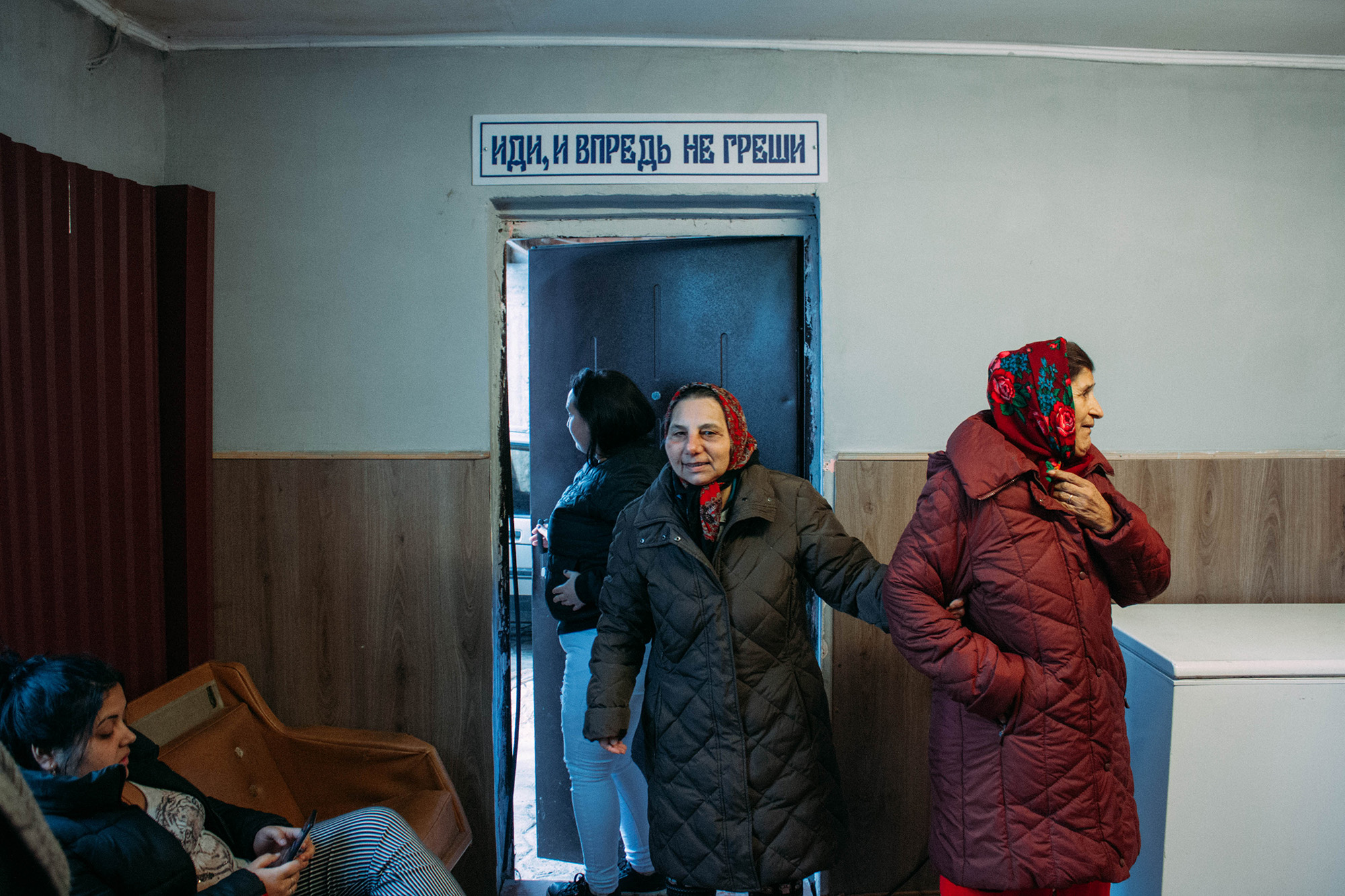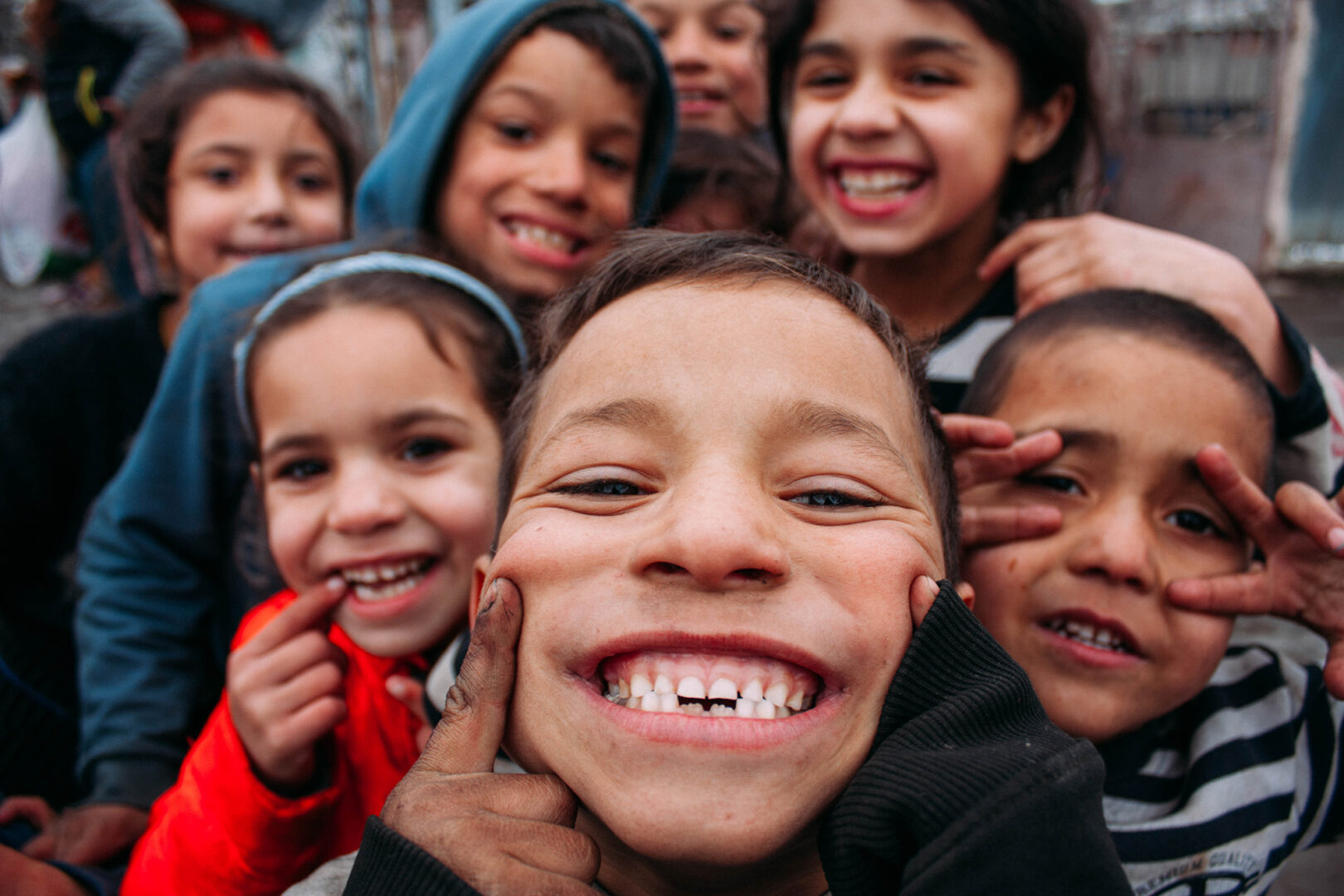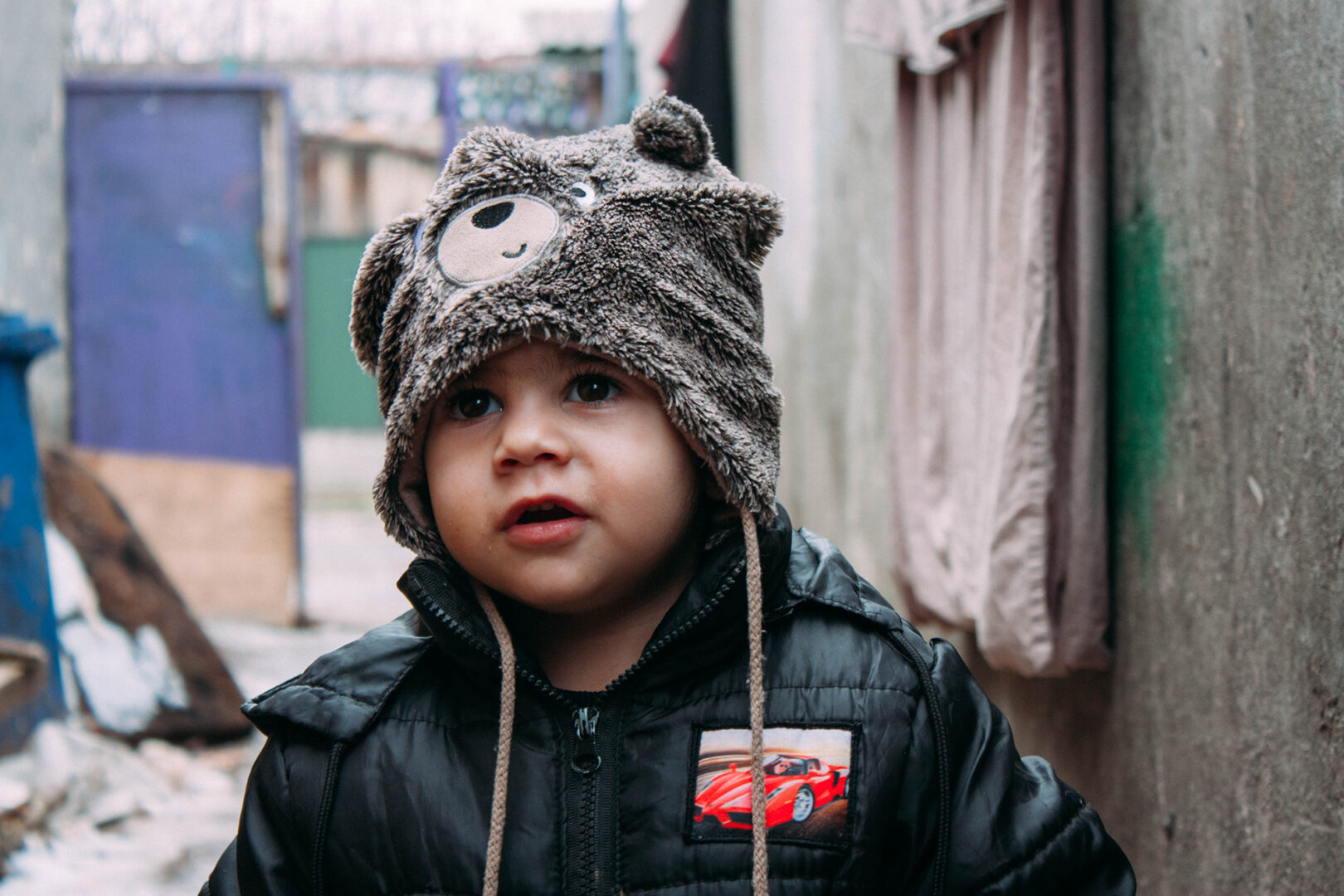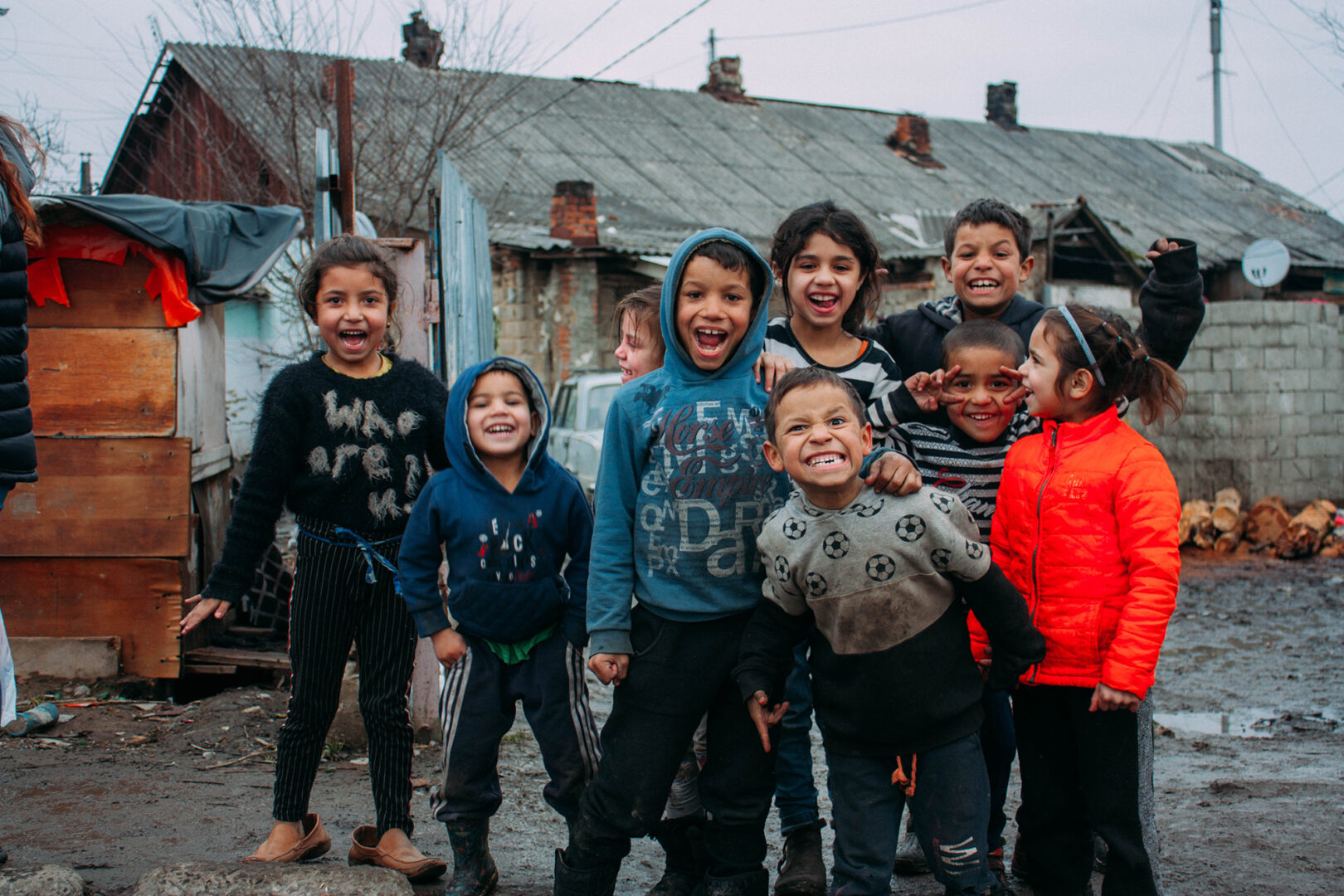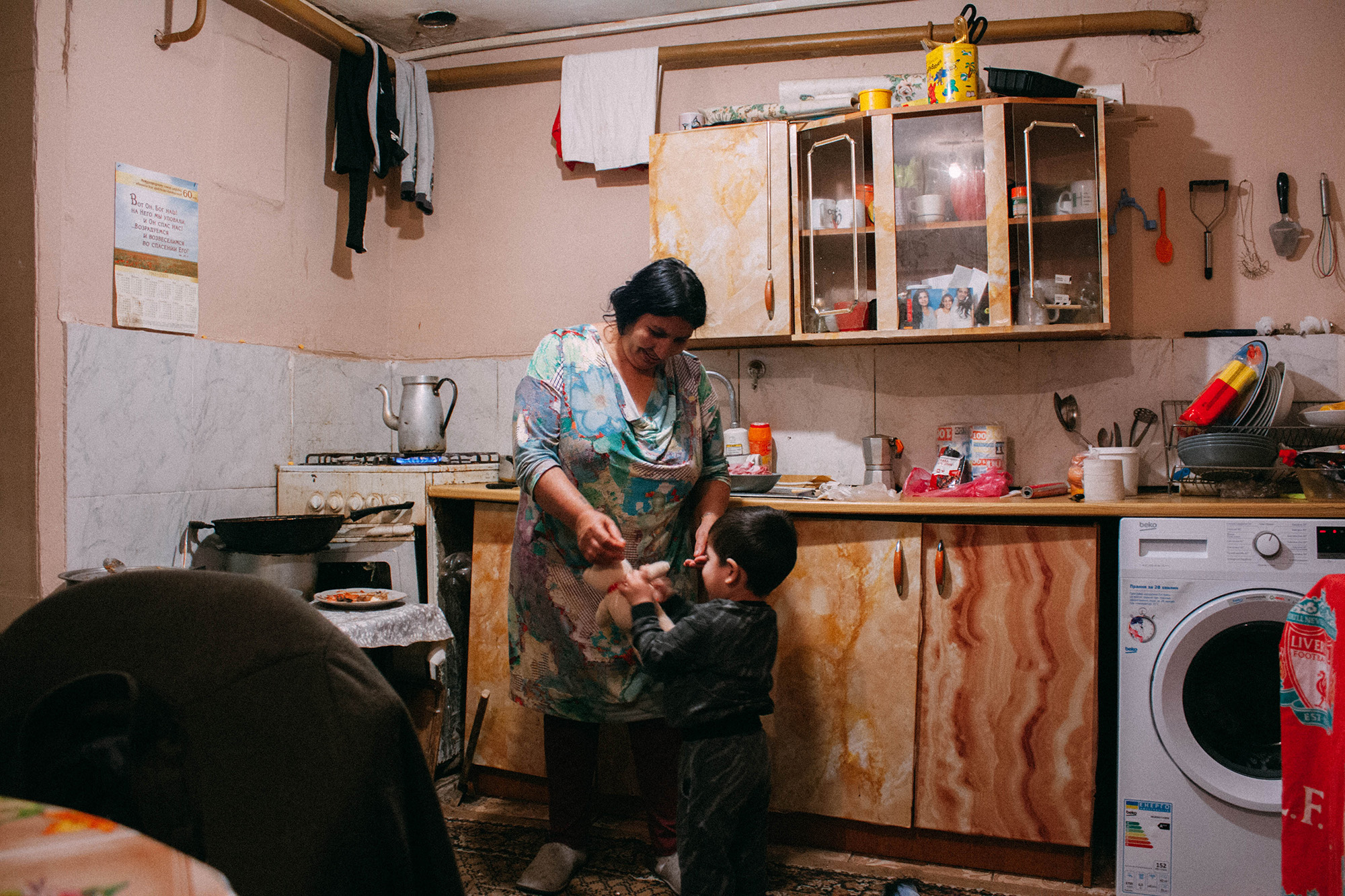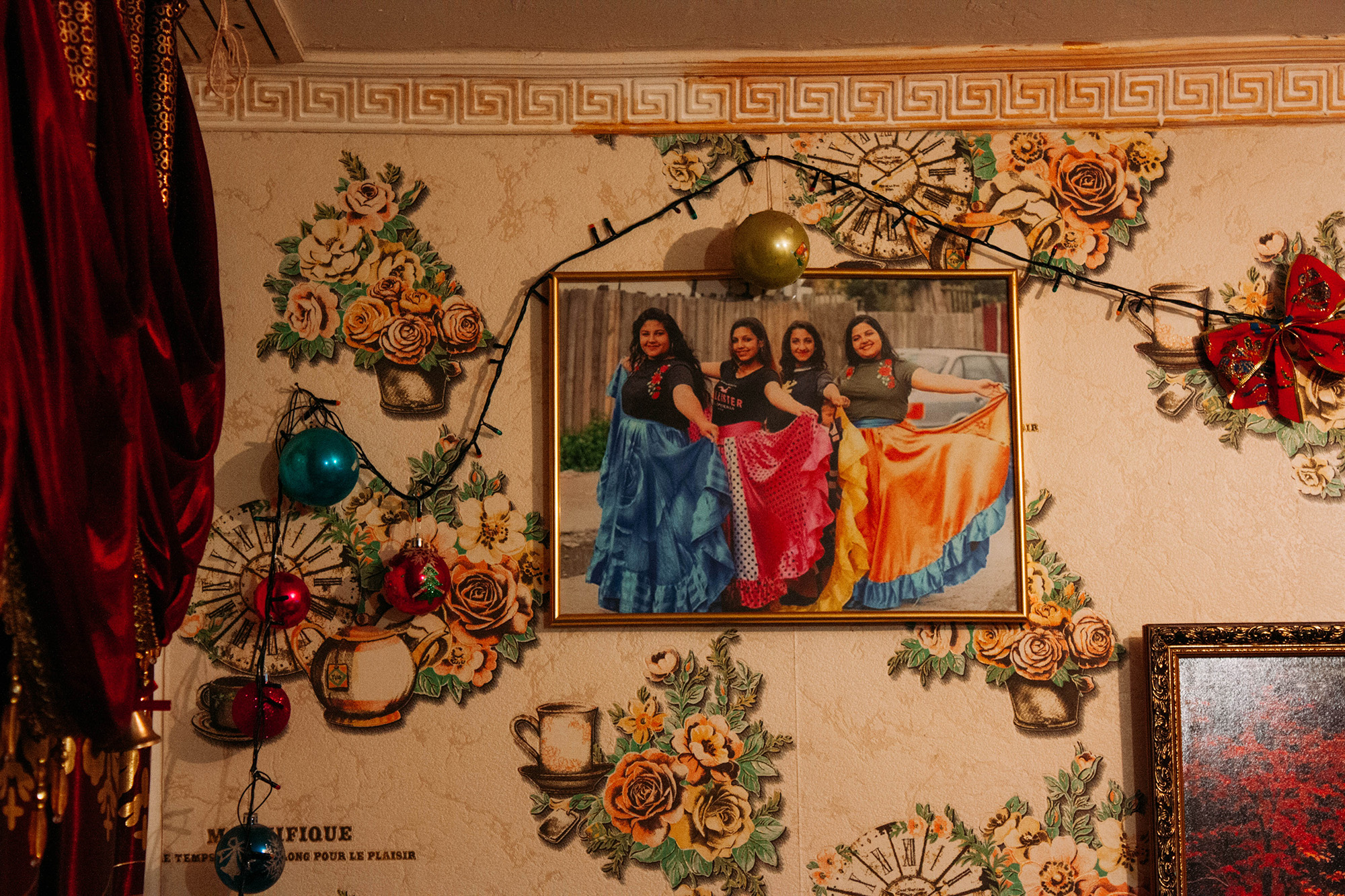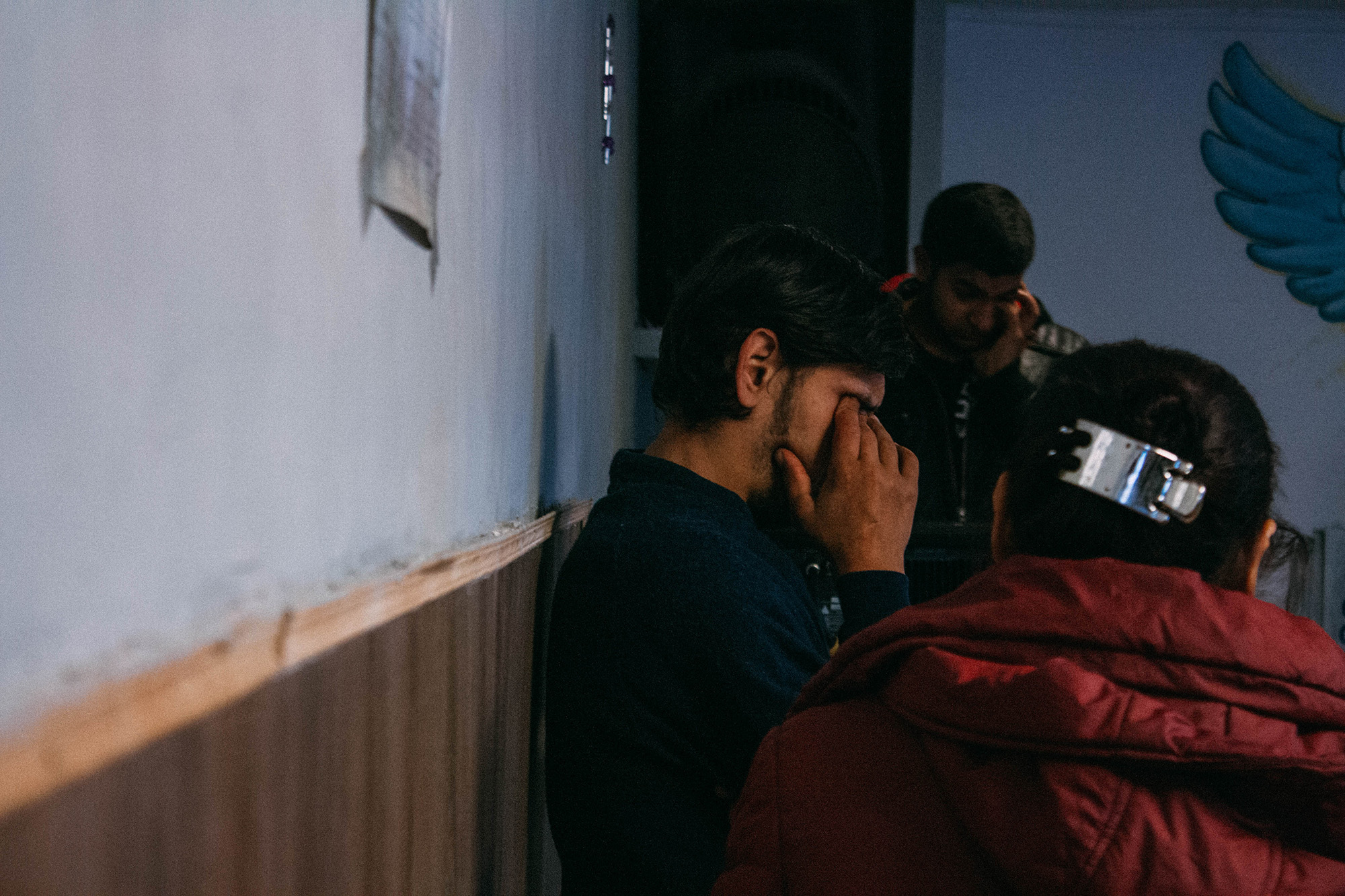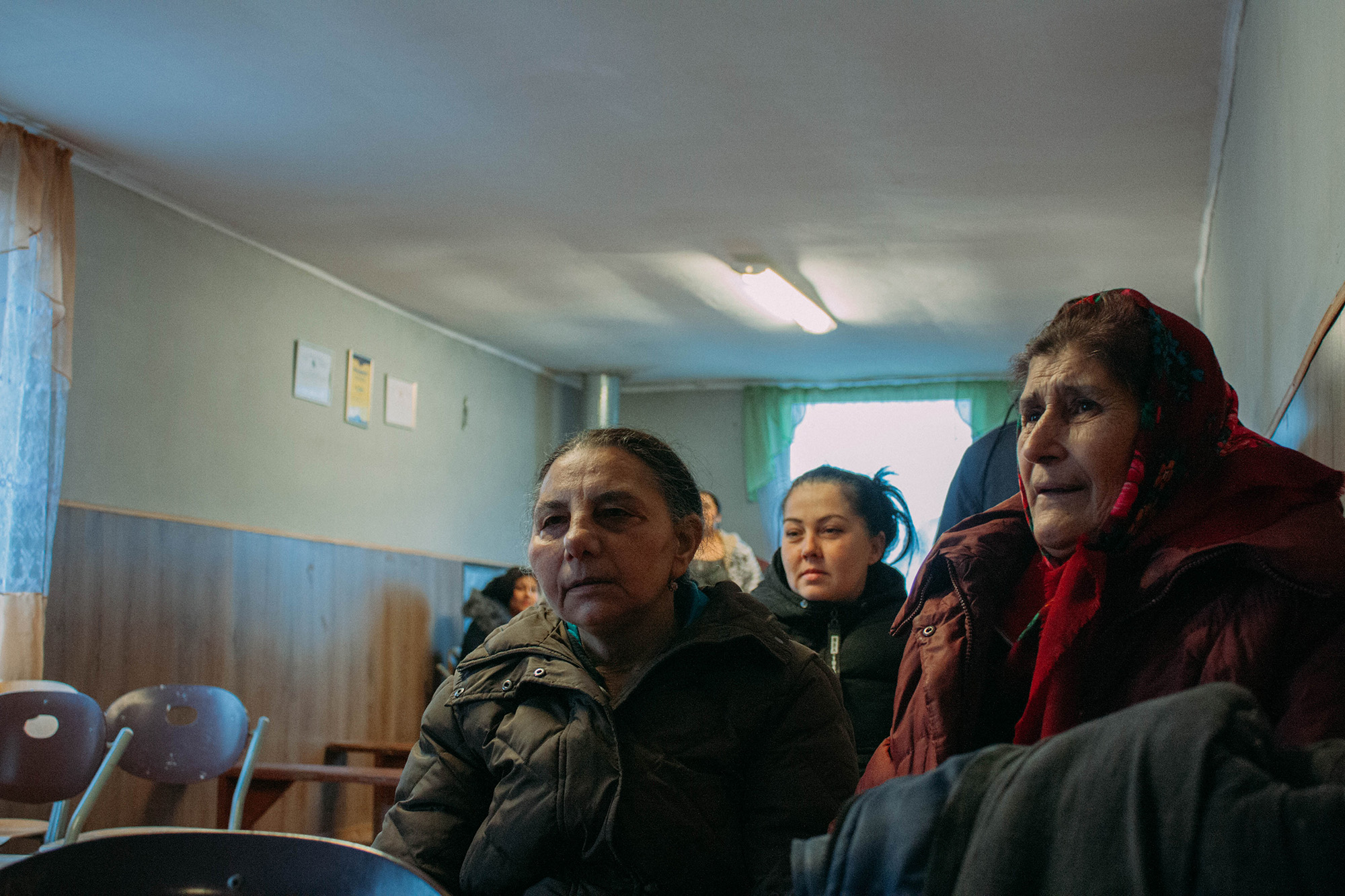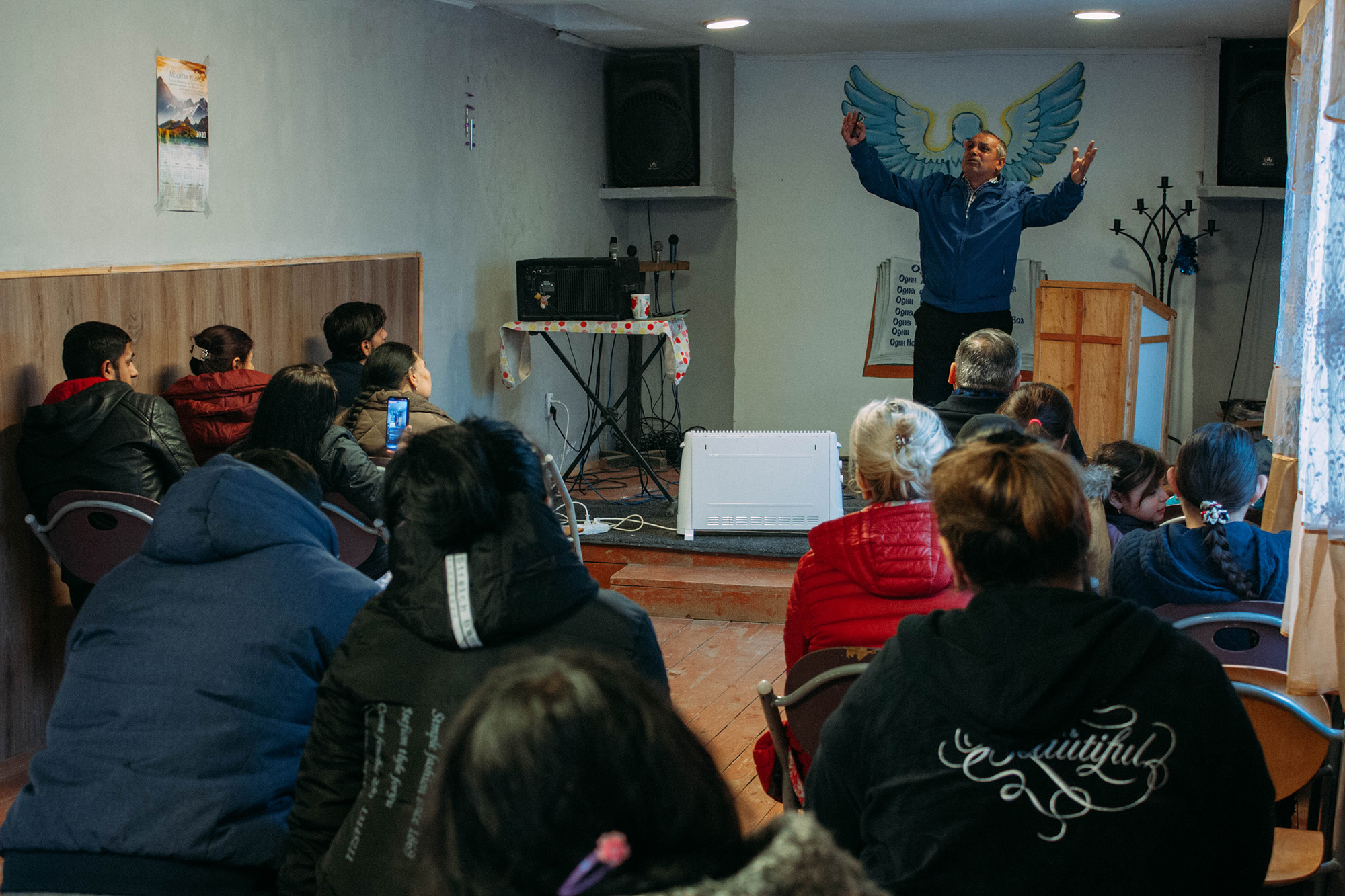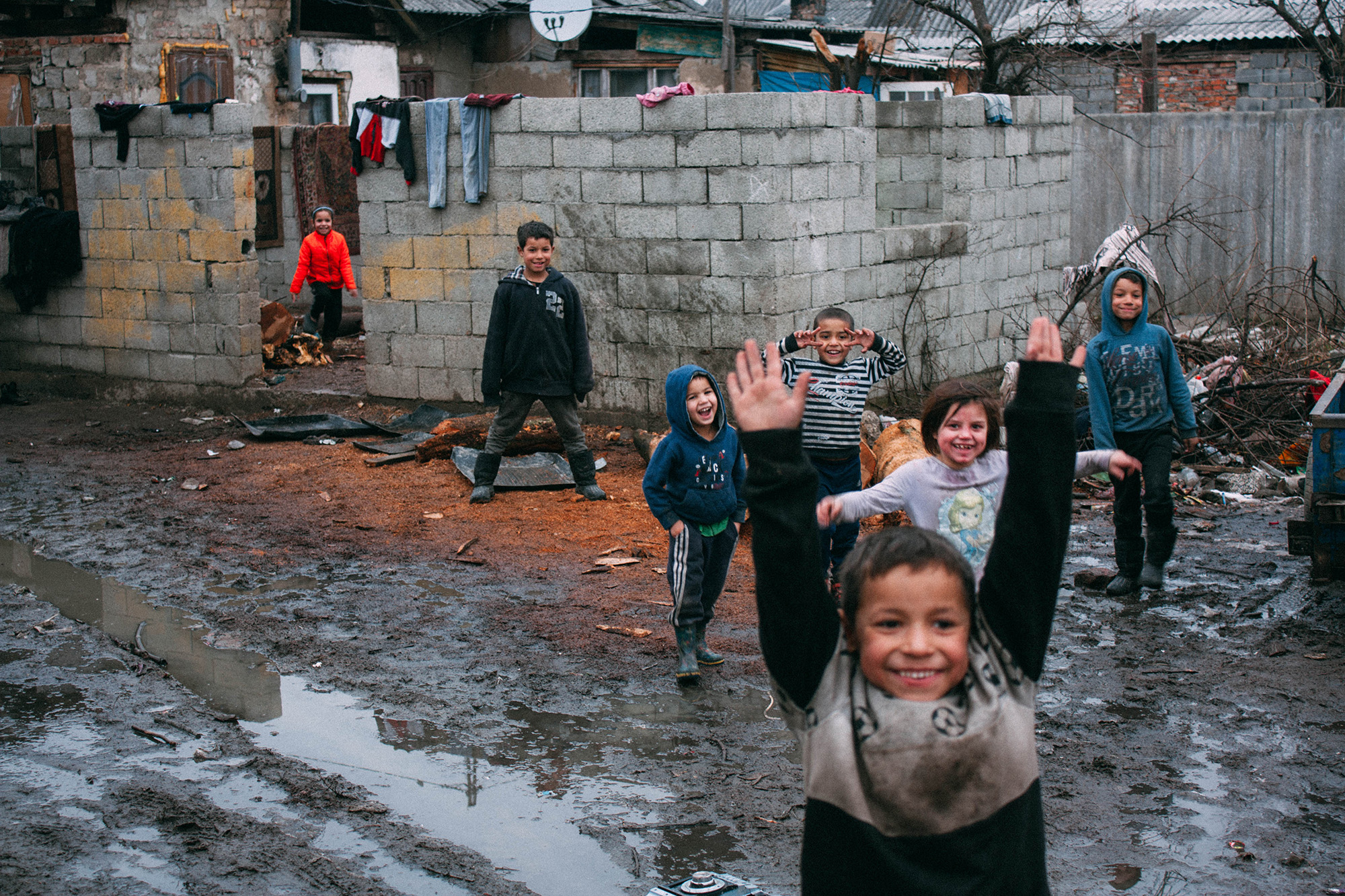
Looking for the Roma God
“Young lady! Give me some money for the sake of all that is holy,” I hear a hoarse female voice, as a small figure appears before me on the platform.
A Roma woman, dressed in a long stained skirt, presses a baby to her chest. She extends her hand, taking a step towards me. It is unclear how old she is. She looks like a teenager—tiny, slightly stooped, with sharp, quick movements.
I shake my head and walk to the exit of the station.
“There is no God in you! And He sees everything!” she angrily shouts after me.
The Roma and gypsies
I go looking for the Roma god to the wide Sándor Petőfi Square. It is crowded here, despite being the middle of the working day. Uzhhorod is springlike wet, although, going by the calendar, it is still winter. But here it drips from the roofs, flows along the roads, and gurgles down the drains.
“Come, and we’ll discuss,” a short instruction is heard from the phone. The rich baritone leaves no room for arguments.
When we meet, my interlocutor breaks into a broad smile, glistening with golden teeth—where did all that telephone formality go? Dressed in a short green coat and an old shabby cap, he looks a bit like a taxi driver.
“I’ll tell you this: there are Roma and there are gypsies. And they are different people.”
He explains:
“The Roma accepted Christ and repented. They learned to lead a descent life, abandoned old habits, and gave up what was destroying them from within. In contrast, the gypsies follow their old ways. They do not want to change their lives for the better.”
“We are different,” he adds after a short silence.
Ivan Baloh is Roma. He is 53. He is a social worker at the Department of Labor and Social Protection in the Zakarpattia region, and helps low-income families who are experiencing difficulties. He says that one has to do good—and the good will come back a hundredfold. While gypsies do not want to think ahead. It is easier for them to live for the moment.
“In order to truly change one’s life, one has to make sacrifices. Have some discipline, some self-restrain. Gypsies do not know how to do that. Learning to read, obtaining documents and getting a proper job is harder than palm reading and the likes. The gypsy thinks: “I have eaten and I am full.” He will not think about what he will eat tomorrow or in a week. He’s already fine, here and now,” Baloh explains.
According to him, Roma, unlike gypsies, have learned to “think about tomorrow” from Ukrainians.
“A market in summer. It is +35 outside. There are gloves for sale. Gypsies will not buy those gloves. They will only laugh: it is too hot, what kind of fool would buy winter clothes? While Ukrainians will buy them, and maybe more than one pair—because they are cheaper now. And winter will come eventually!”
The stone of help
In addition to public service, Ivan is also serving God. Uzhhorod Roma know and respect him as the pastor of the Eben-Ezer Baptist Church, which means “the stone of help” in Hebrew. In the First Book of Kings, the prophet Samuel puts a stone sign in memorial of the miraculous victory over the Philistines: “The Lord has helped us get to this place.”
The Baloh family built this church in the yard of one of Ivan’s sons. Now every Sunday they gather with other parishioners to hear the Word of God. It all started with one grateful family whom Ivan helped with prayers for the recovery of the head of the family. They became the first people to come to his sermons. Dozens of Roma now meet in a small church every week. Sometimes they have to bring more chairs from a neighboring house.
“Now Sunday is a holy day for us. But in the past it was completely different: the children were starving, my wife was crying, and I was a drunk,” Ivan says. “My brother-in-law lived nearby. He knew what life was like for us, and one day he could no longer stand it. He came to us and knocked on the door: ‘Look what you are doing with your life, Ivan! The devil is deceiving you! Enough!’”
He was already attending the Pentecostal church, and believed in God. And he could not watch his sister’s family fall apart any more. He brought a pot of stuffed cabbage rolls with him that day. Ivan’s children attacked the food, barely chewing they were so hungry.
“He offered to take me to church early in the morning. I agreed just so that he would leave me alone. But in the morning I had already forgotten about my promise. Then he knocked on my window. ‘Let’s go,’ he said. ‘It’s winter outside, it’s snowing, it’s freezing,’ I responded. ‘What are you talking about? I don’t even have winter shoes!’ So he went back home, and brought me shoes and a jacket.”
Ivan did not take that service seriously. He decided to go, sit in the corner, and drink some vodka from a bottle, which he had prudently hidden in his pocket. And he planned to sneak away while everyone was praying. But then the pastor said: “Maybe there is a person in this room who considers themselves lost? Who is being abandoned by his wife and children. Someone who is destroying his family. God does not believe you are lost!”
“I thought that my brother-in-law had told him about me. I didn’t believe any of it. And then the pastor said: ‘Maybe there is a person in this room who would like to have a drink right now? Do not do that. Come to God.’ But no one knew I was hiding that quarter-liter in my pocket. I did not tell anyone about it! Yet God saw it,” Ivan’s voice is shaking.
Then he repented. He set out on a new path. Stopped drinking and started going to church regularly. Four kilometers by foot.
“I was nearly running to the service! Never missed a single meeting. I started learning to read because I wanted to read the Bible. I began memorizing everything. God opened a panoramic view of the world to me. I remembered everything I read as if it had always been a part of me. Thirsty for knowledge, I wanted to learn more and more, I could not stop.”
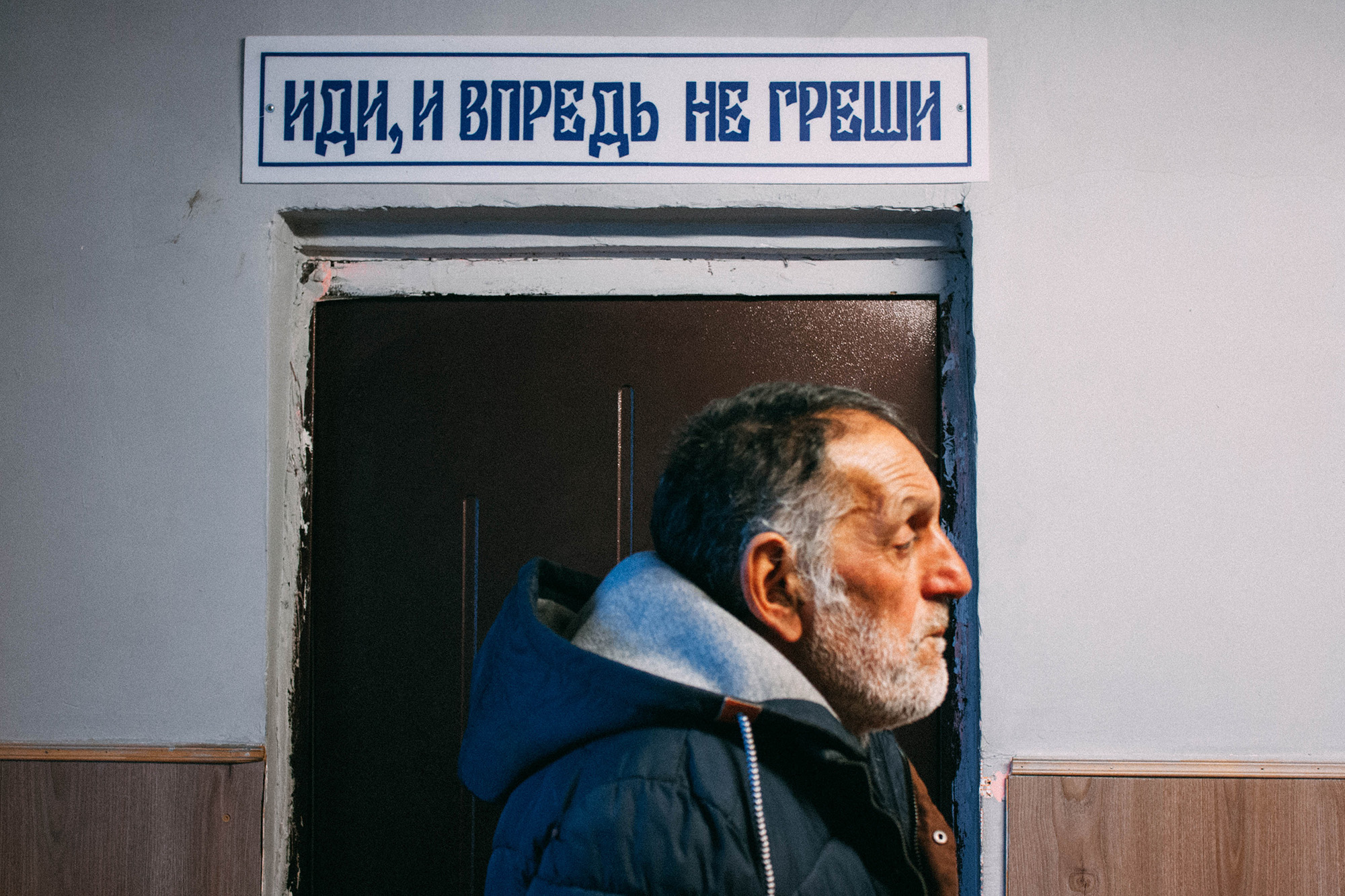
The church saw that the man had a good memory and was a quick learner. So the following year, after he was baptized in water, he was sent to study in Lviv. Ivan studied there for three and a half years at the Bible Institute at the Golgotha Prayer Center of the Ukrainian Pentecostal Church. Once he graduated, he became a lecturer of homiletics (the art of preaching) and dogmatics (the basic tenets of Christian doctrine). Today Ivan preaches in the Roma camps of Zakarpattia and carries the Word of God. He explains to the Roma that God can change their lives—like He changed his own.
Escaping the chaos
Uzhhorod has several compact Roma settlements: Radvanka, Telman, Artyleriiske, Pyrohova. Several more camps are scattered around the suburbs. But today most Roma in Zakarpattia live in Mukachevo. There is at least one church in each camp. The rapid development of Roma religious communities has been ongoing for the last twenty years.
“Thanks to the church, the Roma are changing their lives. For example, there are now fewer early marriages. The church preaches that this is a sin. In addition, it is illegal in the country where we live,” Myroslav Horvat, Deputy Director of the Department of Labor and Social Protection, a member of the Uzhhorod City Council and a Roma activist, explains.
He says that the church is helping the Roma to change or even abandon some outdated Roma traditions. And this, in turn, is helping the Roma to integrate into modern society. For example, many women are giving up fortune-telling because, according to the Bible, it is forbidden. The question arises of how they can earn money, and for this they need to learn basic things.
According to Horvat, in the Roma community, spirituality has a very practical application.
“In church they are told to learn to read and write to understand the Word of God. So step by step they are escaping the chaos in which they previously lived. The Church is encouraging them to rethink their ways. For example, they are beginning to treat their children differently. Previously a woman would give birth—and that was it, she would let the child grow up with minimum of care. Nowadays, Roma acquire a sense of responsibility, an understanding that actions have consequences: both before God and before the law.”
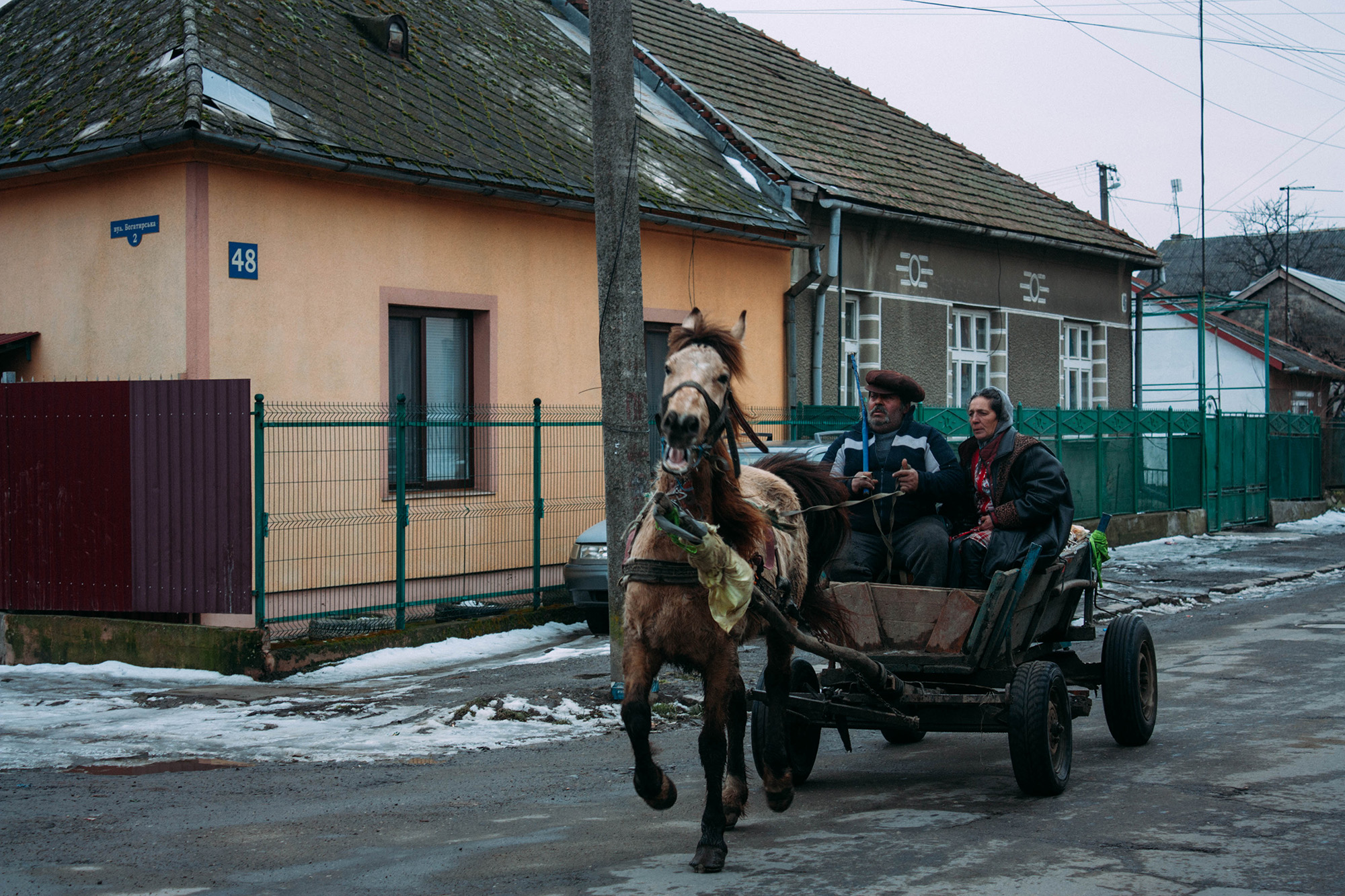
The first Roma churches in Zakarpattia began to appear in the mid-1980s. The biggest was in Mukachevo. At the end of 1984, a young Christian from Chervonohrad, Serhiy Balyiuk, came to preach at a Roma camp in Mukachevo at God’s call. Later, they started feeding people for free at this church. This helped to attract to the religious community those who initially went not to God, but for a piece of bread.
The example of the Mukachevo Roma spread over the region. In the 1990s, the first pastors appeared in Uzhhorod. Today there are seven of them in the city. There are many denominations here: Orthodox, Catholics, Evangelists, Baptists, Pentecostals. Usually Roma do not have a single religion; they adopt the religion that is most popular in the region where they live.
The Lord is welcoming to all who come to Him in pure faith. But earthly life is not always friendly. Due to discrimination and prejudice, Roma were often not allowed into traditional Ukrainian churches, so they were forced to establish their own, where they would no longer feel like uninvited guests.
These Roma religious communities resemble the so-called “black churches” organized by leaders of African-American communities in the United States in response to the oppression of their freedoms by white Americans. In the 18th century, a movement of Evangelical and Baptist preachers started there, which gave impetus to the rapid development of the Methodist churches, bringing together several million African-American believers. We see the same dynamics and the need for separation and independence in Roma communities today.
“In recent years, Roma churches have become so powerful that they now solve many problems autonomously. They have patrons from America, and contacts with other religious communities abroad. This allows for additional cultural exchange,” says Myroslav Horvat.
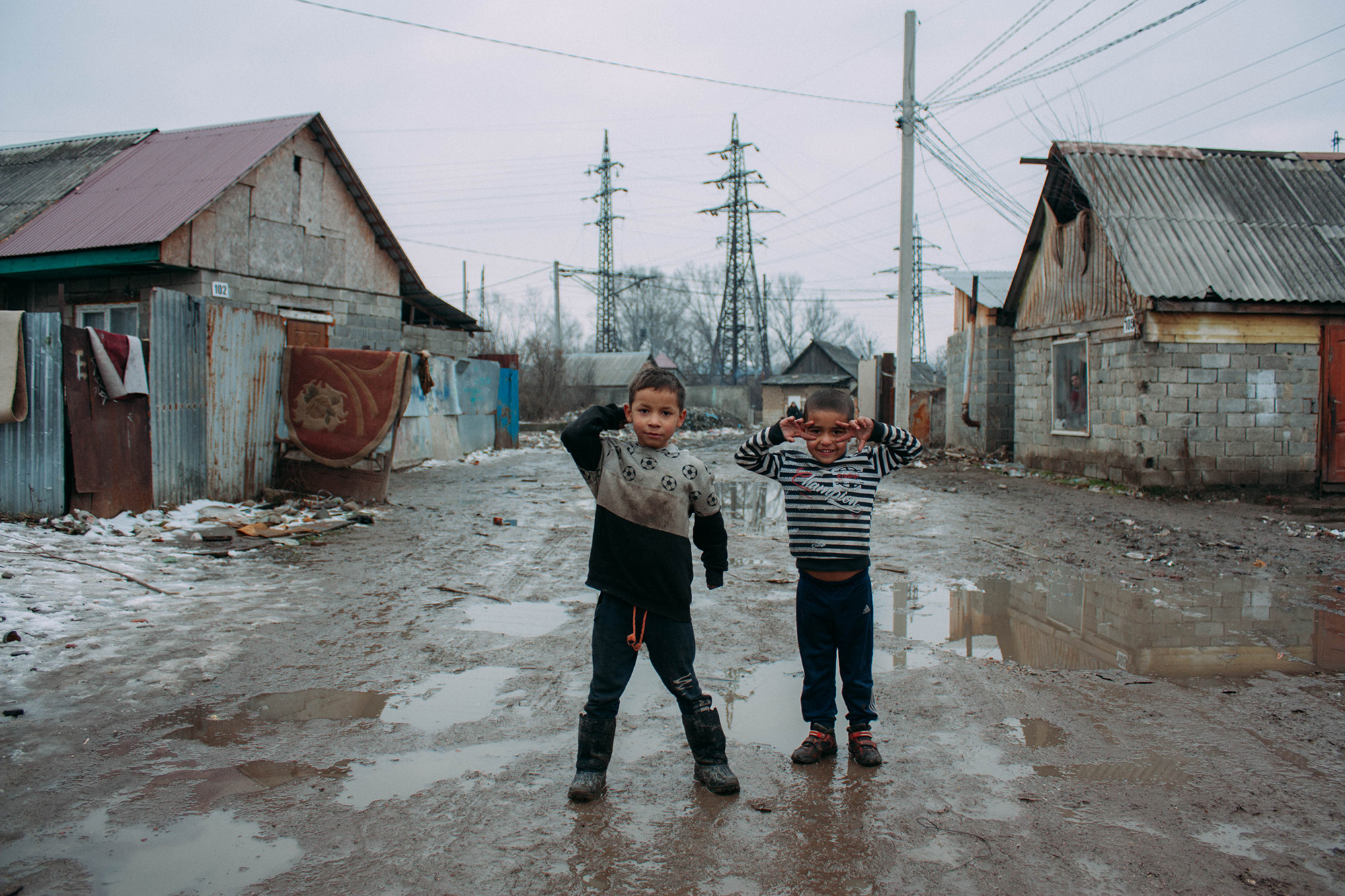
He says the Roma community has repeatedly asked him to become a pastor. But he believes that he should follow a different path.
“In the Roma community trust and authority are sufficient to be recognized as worthy of pastorship,” Horvat explains. “But this is not right. Being a pastor of the church is not just words of flowery. It is common practice among Roma to choose those who can speak well. That is why people can become pastors who do not have specialized education and who only have basic reading and writing skills. But even that produces a result.”
The path
Sometimes Roma come to church for a very specific reason: to study the Word of God so that they can evoke it while begging in the streets. These are usually women from poor families who ask for alms at train stations or in underpasses. These Roma are a small but noticeable section of the community, who are an embarrassment for the rest. For most Roma, this is a weak point that hurts and irritates them.
Ivan Baloh explains that because of this, non-Roma identify the entire Roma community with begging, theft, and fraud. Therefore, Roma often emphasize: “There are ‘us’—the Roma, and ‘them’—the gypsies.”
But the Roma know how to (and want to) truly believe in God. Everyone comes to Him in their own way. Everyone is in pain: poverty, family quarrels, drunkenness, domestic violence, unemployment. In church they are looking for a way out of trouble and the path to happiness.
Some, having listened to sermons, find hope that they can change their lives. And over time, step by step, they make big changes. Others find like-minded people and community in the church. Because some members of their families may not believe in God. In this case a man or woman who has learned the revelations but has not found support in their family goes to church. Despite the patriarchal hierarchy, in Roma families everyone has the right to seek God in their own way.
“In the summer I often see Roma in Radvanka coming out of their old dilapidated houses and walking down the street to the sermon. They are showered and well dressed. They are smiling. Naturally, over time, some of them stop coming, but many remain, join the community, and show initiative. This is especially true for our young people,” says Myroslav Horvat.
He says the church should talk to young people first. Find a modern approach to them. This means that religious communities should implement educational initiatives. As a rule, older Roma expect to be fed in the church: they want some buckwheat or pasta. But young people come to God for other reasons. They are interested in listening to the church music, singing, and taking part in religious performances. The establishment of educational groups or schools at the church can be a great impetus to increasing the level of education of the Roma.
This practice is common in Roma communities in Europe: for example, many night schools operate at churches in the Czech Republic and Germany. This is where children and adolescents have the opportunity to study when it is difficult at home. In Ukraine, education has become part of the development of Roma religious communities through non-governmental organizations. Activists organize trainings and master classes on practical issues at Roma churches (for example, how to search for information on the internet, publish posts on Facebook, study remotely).
When the gypsy is wrong
The Baloh family’s kitchen is stuffy. There is a viscous smell of stew and detergent from the washing machine, which is humming incessantly. The house is buzzing with life. The din of voices merges with the methodical buzz of the washing drum. There are ten children and forty grandchildren in Ivan Baloh’s family. Two daughters live abroad, the rest of the family live in Uzhhorod. Almost everyone either works or studies. And although most children are grown up, have started their own families and moved into their own homes, it is a sacred duty to visit their parents.
Every evening, at about five o’clock, the older brothers gather for dinner together after work. At a cramped table in a small kitchen, with the clatter of plates and metal spoons, men retell the latest news. The director gave three bonuses, the police came to the camp, at night the neighbors were fighting by their windows, someone came with a stun gun. . .
The entrance doors never close: some people are running into the kitchen, others are shouting from outside, some are saying goodbye. The neighbors knock on the window: some need salt, others need advice. The daughters bring sons-in-law, the granddaughters—their friends from the neighborhood.
We talk about how God came into their family life.
“My parents and I did not talk about religion,” Ivan Baloh recalls. “My mother was a drunk, so she died early. My father spent half his life in prison and later also died. So I grew up in a boarding school.”
As a child, Ivan thought he had no right to go to church. He believed that this was possible only for those who prayed constantly. And he did not know any prayers.
“I was twelve when my father died. At the funeral, I heard the priest say: ‘He who opens the Bible will be blinded,’” telling about his childhood, Ivan seems to pick every word carefully. “So I was afraid every time I saw the Bible: closed my eyes and ran away. Now I understand that a priest could not possibly say that. Most likely, I misunderstood something he said. I thought God would blind me.”
Now Ivan understands that it is important to talk to children. That is why he often explains to his family how to live as Christians in line with the teachings of the Bible. Although the questions are sometimes very adult: about the end of the world, or about the resurrection of the dead. But he always finds an answer.
Ivan Jr. is the second son in the family. He says that in the first weeks after his father’s baptism, the family was shocked:
“Previously, my father used to send me to get vodka for him. I was small then—it felt like the bottle was twice my size. And now weeks were passing and he not once asked me to go and bring him something to drink. I could not understand what was happening.”
He says the family dinners were the biggest surprise. The family never had them before. The children were afraid of their father: they ate in the corners, it was like every man for himself. Ivan’s wife Klara was suffering, as well. Sometimes Ivan got drunk and so angry that they had to jump out of the windows.
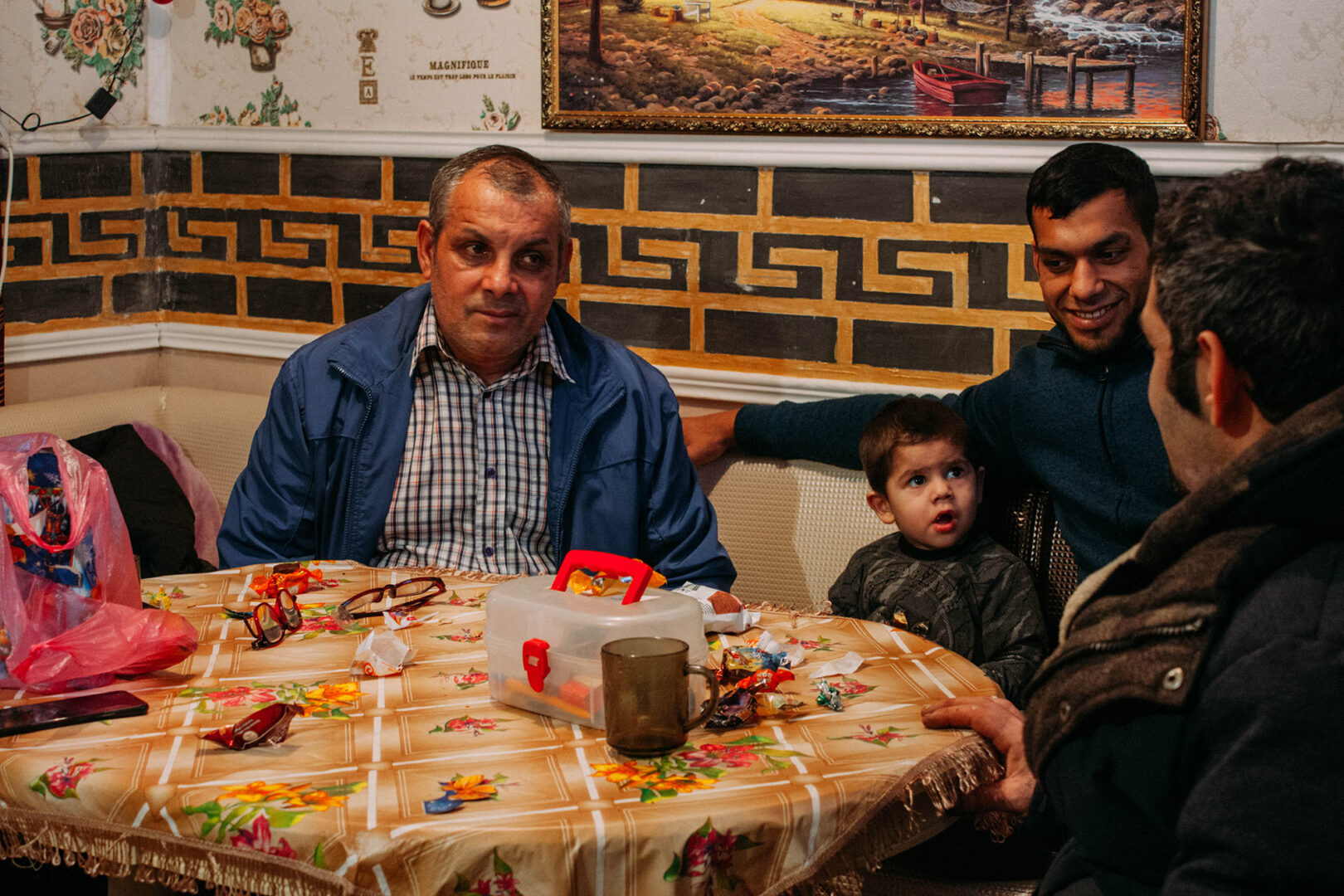
The sons have been living on their own for quite a while now, yet Ivan Baloh is still ashamed about the past. In Roma families, the husband and the father is the head of the family. He was always guided by this patriarchal culture, “because it was customary.” But later he realized that he did not want to live like that.
“Before I repented, I did not know how to ask for forgiveness. There is a rule: a gypsy should not apologize to his wife. He is always right. So I stayed silent when my wife was unhappy, when she cried at night. Once at the sermon, the pastor told me: ‘Do you know how much Christ was beaten? How he was tortured? But on the crucifix he still asked God to forgive his offenders. He held no grudge against them. While you cannot forgive each other in your own family! How then will God forgive you?’”
After that, Ivan came home and for the first time in all his years of married life apologized to his wife.
“Dad turned into a completely different person. Right in front of our eyes. And we started believing. But, truth be told, at first not so much in God, but in our father,” Ivan Jr. says.
Since then, the Baloh family has abandoned the patriarchal treatment of women as an adjunct to men. Ivan explains that in some local families, a woman is not even allowed to sit at the same table with men. But he decided once and for all: it will not be like that in his family.
There is a place for everyone at the table.
Grace
Sometimes the Balohs regret the lost Roma traditions. They proudly take their billowy skirts out of the closet—part of their ethnic costume. They talk about big weddings in tents (“these are not some fancy restaurants—these are real life!”). They warmly remember the crafts of basket weavers and blacksmiths, which are no longer popular.
And then they say: “Times change. So we have to change as well.”
Due to his faith in God, Ivan Jr. has repeatedly done what, in his words, “an ordinary gypsy would never do”. When he fell in love with his future wife and the couple decided that they would spend the rest of their lives together, at first Ivan thought: the bride must be kidnapped so that no one can stand in the way of their marriage. Because this is an old Roma tradition.
“And then I thought: ‘How can I do that? I am a Christian!’ Had I not repented, I would have kidnapped her without hesitation. My people do it often. Instead, I thought: my father is a preacher in the church, so wouldn’t it embarrass our family? And people would say: ‘Right, once a gypsy—always a gypsy.’ I didn’t want people to think we were savages.”
The second time Ivan went against tradition was when his wife found out that she сould not have any more children. The last time she gave birth was difficult—the woman lost a lot of blood and underwent major surgery. At the time she gave birth to two girls, but the couple had no son—the heir to the family, who is highly valued in patriarchal communities. Her family said: “He will leave you, just wait and see. He needs a son, like any decent Roma.”
While Sveta is telling this story, Ivan Jr. looks at his wife with the eyes of a boy in love: the way he looked at her when they first met at a church service. The woman blushes and winks in response. The couple recently celebrated their two-decade anniversary of making vows to God.
On Sunday after the service, his father, Ivan Sr., is inspired and lively.
“A man is walking on the road. He stumbles and falls. But he will not lie on the road forever. He will get up, shake the dirt off his shoes and pants—and keep walking. Because the most important thing is to return to God in good time. And He will forgive you.”
The pastor jokes a lot and quotes his favorite passages from the Scripture. He retells biblical stories and parables. He says Roma understand best when spoken to kindly. When complex things are put into simple words. Like to a child. Because the faith of an adult must be childly pure. But at the same time, Baptists believe that people should come to God only after they have fully understood His Word with their souls and minds. You cannot pressure someone into doing that. Therefore, their faith involves water baptism in adulthood.
“Jesus was baptized at the age of thirty,” Baloh adds. “The Lord will find the way to a pure heart.
His wife, Klara, places large bowls of cookies and candies on the table. She pours boiling water into cups. Ivan’s youngest daughters and granddaughters, who are already the same age as their aunts, enter the kitchen. They whisper to each other and laugh. They speak Romani, so it is difficult to understand.
“Hey,” Ivan interrupts them. “I have already asked you once. When there are guests in the house we do not speak Romani, we have to speak Ukrainian. Show your manners. Yo?”
“Yo!” in response, the flock bursts out laughing and runs away from the kitchen, shouting something in Romani from the corridor.
The pastor smiles and shakes his head, flipping through the yellowed pages of the Bible. He cherishes it like the apple of his eye: it was given to him as a gift back when he was still a student. Since then, he doesn’t even look at new ones.
“God rejects the proud, and gives grace to the humble. One day my son came to me: ‘Dad, who is thy neighbor?’ And I said: ‘Thy neighbor is the one who hates you, yet you still do not hold a grudge against them. You love them.’”
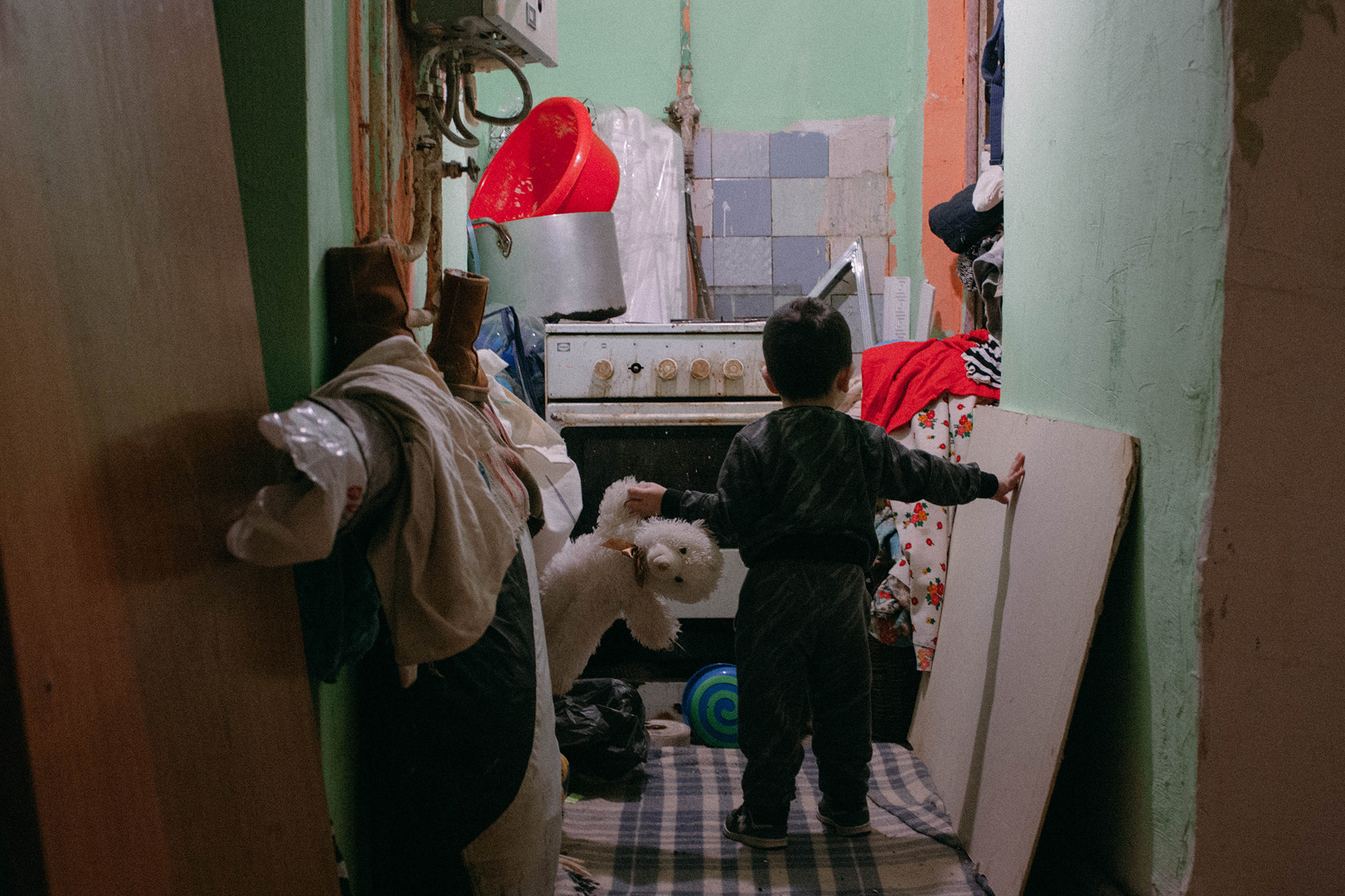
[This story was created with support of the Royal Norwegian Embassy in Ukraine. The views and opinions expressed in this publication are those of the authors and do not necessarily reflect the official position of the Norwegian government.]
Have read to the end! What's next?
Next is a small request.
Building media in Ukraine is not an easy task. It requires special experience, knowledge and special resources. Literary reportage is also one of the most expensive genres of journalism. That's why we need your support.
We have no investors or "friendly politicians" - we’ve always been independent. The only dependence we would like to have is dependence on educated and caring readers. We invite you to support us on Patreon, so we could create more valuable things with your help.
Reports130
More





